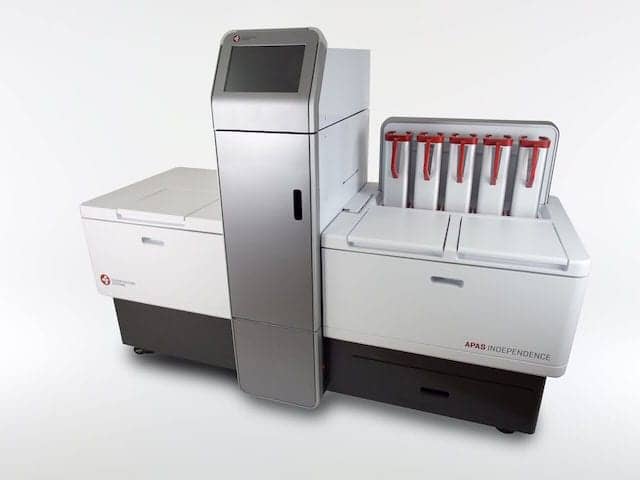LBT Innovations Ltd, Adelaide, Australia, and joint venture company Clever Culture Systems AG have successfully completed an independent evaluation of their automated plate assessment system (APAS) Independence instrument at St Vincent’s Hospital in Melbourne. The evaluation is the first laboratory installation of the instrument globally.
APAS is an artificial intelligence technology for the automated imaging, image analysis, interpretation, and reporting of growth on microbiology plates after incubation. The APAS Independence, which is about the size of a large photocopier, was developed to improve the diagnostic efficiency of microbiology laboratories and enables faster reporting of infectious diseases. The FDA-cleared technology is based on LBT’s Australian-developed intelligent imaging and machine learning software.
Placement in St Vincent’s Hospital enabled evaluation of the instrument’s performance within a diagnostic pathology laboratory, in an end-user setting, with scientists using the instrument over a 6-week period.
The evaluation included more than 3,000 urine samples, which the instrument automatically read and interpreted.
“It was a pleasure to work with the dedicated team at St Vincent’s Hospital who conducted the evaluation completely independently and demonstrated a high level of engagement with the instrument,” says Steven Giglio, PhD, scientific director at LBT. “The instrument performed as expected during the evaluation and was successful in triaging the negative plates out of the workflow, allowing microbiologists to focus on positive plates only. In addition, the APAS Independence facilitated significant upstream benefits in specimen processing, realizing further efficiencies from the introduction of this instrument.
“A significant amount of data has been generated, which will form the basis for several scientific presentations and publications to disseminate these findings to the scientific community,” Giglio adds.
The independent evaluation by St Vincent’s Hospital confirms the utility of the instrument in a clinical setting. Of note are the additional efficiencies gained at the specimen processing step, which LBT expects to be representative of other laboratories around the world.
“It is pleasing the instrument performed successfully in a real-world setting in this global first trial,” says Brent Barnes, LBT CEO and managing director. “The evaluation of the instrument provides clear validation that the foundational technology works and the instrument does deliver efficiencies in a laboratory.”





